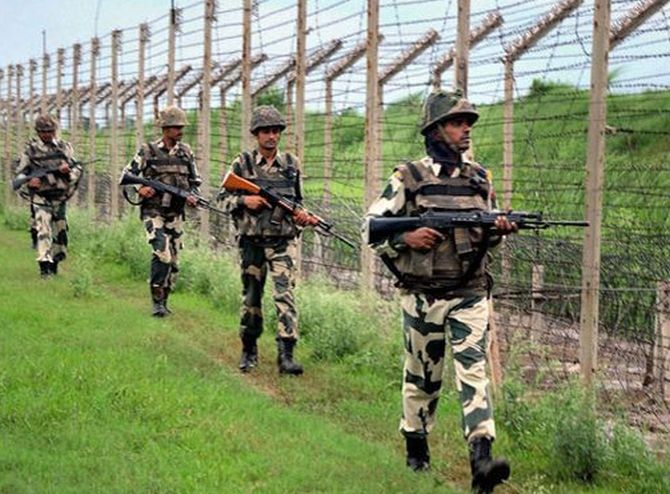The Pakistani Army has violated ceasefire more than 2,050 times this year without provocation in which 21 Indians have been killed, the ministry of external affairs said on Sunday.
India has repeatedly conveyed to Pakistan to ask its forces to adhere to the 2003 ceasefire understanding, it said.
“We have highlighted our concerns at unprovoked ceasefire violations by Pakistan forces, including in support of cross-border terrorist infiltration, and targeting of Indian civilians and border posts by them,” ministry of external affairs spokesperson Raveesh Kumar said.
“This year they have resorted to more than 2,050 unprovoked ceasefire violations in which 21 Indians died,” he said.
India has repeatedly called upon Pakistan to ask its forces to adhere to 2003 ceasefire understanding and maintain peace and tranquillity along the Line of Control and International Border, Kumar said.
Indian forces exercise maximum restraint and respond to unprovoked violations and attempts at cross border terrorist infiltration, he said.
His remarks comes and heightened tensions between India and Pakistan following the abrogation of provisions of Article 370 in Jammu and Kashmir and the bifurcation of the state into union territories.
Pakistan and India have been engaged in a war of words on Kashmir and the Indian side has hit out at Pakistan, asserting that it was its internal matter.
Pakistan has violated ceasefire several times recently.
On Saturday, Pakistani troops engaged in heavy firing and mortar shelling on forward posts and villages along the Line of Control in Poonch district of Jammu and Kashmir.
On September 1, an army personnel was killed when Pakistani army targeted forward posts and villages in Shahpur-Kerni sector, raising the death toll in ceasefire violations by Pakistan in the twin districts of Poonch and Rajouri since July to eight — six soldiers and two civilians.
Via: PTI. All rights reserved. Republication or redistribution of PTI content, including by framing or similar means, is expressly prohibited without the prior written consent.




